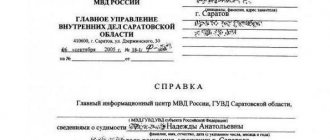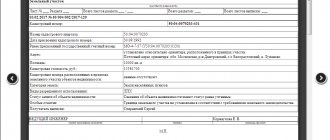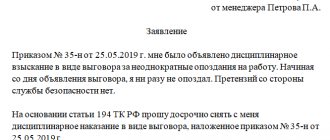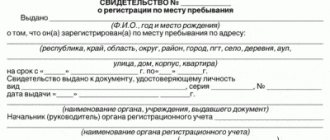General power of attorney for an apartment
In accordance with civil legislation (Article 185.1 of the Civil Code of the Russian Federation), notarization requires a power of attorney for concluding transactions that require a notarized form of certification, or actions that involve making changes to state registers. Since all rights to real estate are recorded in the state register of rights to real estate, the general power of attorney in question must be drawn up in notarial form.
When drawing up such a power of attorney, the principal must understand the consequences of his actions. By issuing a general power of attorney for an apartment, you give a third party the right to dispose of your real estate at their own discretion on completely legal grounds.
The only restriction on alienation rights is a gift transaction.
You can donate your apartment (or other real estate) only if you explicitly provide in the power of attorney not only the right of donation, but also the name of the recipient. Well, of course, a trustee also cannot bequeath real estate on your behalf, since a will is always drawn up in the presence of the testator and personally signed by him (with the exception of cases with hands). In this case, the authorized person can exchange, sell, lease (hire), pledge, register any changes with government agencies, and sign all documents necessary to complete such transactions.
Procedure for registration and cancellation of a power of attorney
To issue a general power of attorney, the principal must contact any notary and have with him a passport, a certificate of ownership of the apartment (or other real estate), a document confirming the grounds for the transfer of ownership rights to you (sales agreement, deed of gift, certificate of inheritance ), as well as a copy of the passport or passport details of the authorized representative.
If the power of attorney provides for the right to make a gift, then passport data and the full name of the donee are also required. Depending on each individual case, the notary may request other documents. You should also understand the procedure for revoking such a power of attorney. The fact is that in the event of cancellation of the power of attorney, the principal must notify not only the authorized person, but also all third parties known to him who have entered into legal relations with the representative. In the case of a general power of attorney, it can be problematic to comply with this condition.
Notaries recommend not issuing this type of power of attorney. It is better to directly indicate the rights that the principal must perform in order to avoid unpleasant surprises in the future. And as judicial practice shows, such an opinion is not unfounded.
Circumstances for which such a document is most often drawn up
Most managers of enterprises and organizations strive to do without such documents. This is quite logical - it is much safer to entrust representative powers to a person you know personally.
However, there are situations when a power of attorney for issuing powers of attorney is necessary, for example, in large companies where there are many departments and employees, as a result of which the director cannot single-handedly resolve all current issues. Also, such a document is used in branches and structural divisions of an enterprise geographically remote from the head office, when the right to issue powers of attorney is transferred to the head of the remote office.
A power of attorney for the issuance of powers of attorney can be drawn up to transfer powers to perform a variety of functions:
- receipt of inventory items
- sending cargo
- representation in various government bodies
- commercial structures, etc.
For what period is a general power of attorney issued?
The validity period of the general power of attorney is determined in accordance with the provisions of Art.
186 Civil Code. This is a general rule that governs the duration of any power of attorney. The law does not provide for requirements for the minimum and maximum validity periods of a document. The previously existing limitation of the power of attorney term of 3 years was abolished back in 2013 by the Law “On Amendments...” dated 05/07/2013 No. 100-FZ.
When issuing a power of attorney, it is not necessary to indicate the validity period of the document. If it is not specified, the power of attorney will be valid for exactly 1 year from the date of issue. If you directly indicate a different period—more or less—then the power of attorney will be valid until that time expires.
An important requirement for a power of attorney is the need to indicate the date of its preparation. Otherwise, the document is considered void and does not entail any legal consequences. Specifying the date allows you to determine the beginning of the power of attorney.
How to calculate the duration of trust deeds
Art. 190 of the Civil Code of the Russian Federation establishes the calculation procedure, they are determined:
- calendar day;
- the expiration of a period of time (month, week, hour);
- an indication of an event that will inevitably occur (registration with the relevant authority, transfer of an item, etc.).
The beginning is calculated by the date the document was drawn up.
The ending is calculated (Article 192 of the Civil Code of the Russian Federation):
- when calculating by years - in the corresponding month and date of the last year;
- when calculated by months - according to the last day of the calendar month;
- when calculating by days - by time in a day (up to 23 hours 59 minutes).
A simple example of how to calculate the term of a power of attorney - three years: date of preparation - 06/03/2021, expiration date - 06/03/2024. When calculating the period, weekends, holidays and non-working days are not taken into account.
ConsultantPlus experts discussed how to issue a judicial power of attorney to represent the interests of a legal entity. Use these instructions for free.
Approximate contents of a power of attorney for the sale, rental and other actions with the apartment
Now let's look at the approximate structure of a notarized power of attorney and its content.
- At the very top, the name of the document (“Power of Attorney”), the place of its issue and the date are indicated. By the way, the date of issue of the power of attorney is a prerequisite for its validity.
- This is followed by the surname, name and patronymic of the principal, indication of citizenship, date and place of birth, his full passport data, information about the authority that issued the document, and address of residence. This is followed by information about your real estate. For example, the address of the location of the apartment, its area, number and date of issue of the certificate of ownership, the basis for acquiring the right.
- Similar information about the trustee is provided below. It is important to say that one power of attorney may indicate several representatives. In this case, everyone can be granted both an individual scope of rights and all the rights specified in the power of attorney.
- The following is information about the order that you trust to be carried out on your behalf. In our case, this means carrying out any transactions with the specified real estate, including alienation by any method not prohibited by law and rental. To do this, the representative is delegated the authority to submit and receive any documents, including certificates, extracts, statements, explanations, and sign all documents necessary for the proper execution of the specified order. As well as representing your interests in all state and non-state bodies or before individuals on issues related to the assignment.
- The following are indicated: the validity period of the power of attorney, an indication of the possibility of reassignment (or the lack of such a possibility), and you confirm that the consequences of issuing the power of attorney and the provisions of the law on powers of attorney have been explained to you. Then the personal signature of the person who issued the power of attorney is affixed.
- After all of the above, the notary’s details are indicated and his personal signature is affixed. With his signature, the notary confirms that the power of attorney was made in his presence, he verified your identity and legal capacity. The number of the power of attorney in the register and information about the amount collected for services are also indicated.
What risks does a general power of attorney pose for the parties?
A general or general power of attorney for real estate assigns to the trustee the maximum number of rights, in particular the right to dispose of real estate belonging to the principal.
In practice, this means that the representative at any time (during the period of validity of the power of attorney) can make almost any transaction on behalf of the owner. Concluding transactions under a general power of attorney carries certain risks both for the owner of the property and for the other party:
- The representative may perform actions with the real estate of the represented person, which the latter may not know about and may not even imagine the possibility of their commission. The transactions concluded by the representative will have to be contested, and this leads to problems both for the person who issued the power of attorney and for the new owner of the property. Therefore, you should not issue general powers of attorney to unfamiliar or untrustworthy people.
- If the power of attorney is revoked, the representative does not have the right to enter into transactions with the property of the former represented person. However, there are situations when the bona fide party to the transaction does not know that the power of attorney has expired. If such a transaction is completed, it may be declared invalid. Therefore, if the seller’s representative acts on the basis of a general power of attorney when concluding a transaction, it is better for the buyer to verify with any notary that the document has not been revoked. Recognizing the transaction as invalid entails the return of the parties to the original position - the seller must return the money, and the buyer is deprived of his rights to the property. However, if the seller refuses to return the money, then collecting it from him will be problematic.
- A representative may make a transaction on terms that are not favorable to the represented person. A general power of attorney, as a rule, does not indicate specific conditions for the disposal of real estate, which may contribute to this. For example, a representative sells an object for less than the owner wanted when drawing up a power of attorney. The trustee’s fulfillment of other verbally agreed (or not agreed upon at all) conditions is not guaranteed. In order to avoid such problems, it is preferable to indicate in the document a list of specific actions that the representative has the right to perform on behalf of the principal.
***
Thus, a general power of attorney can be issued only when the owner of the property knows the representative well and trusts him. Otherwise, it is better to issue a power of attorney only to perform specific actions, for example, to sell a certain apartment for a pre-agreed price.
Unlock access to the private part of Clerk with a Premium subscription. Get hundreds of webinars and online courses, unlimited consultations and other proprietary content for accountants.
Hurry up to subscribe with a 20% discount until October 15, 2021. Read more about “Premium” here.
Simple
If the registration of powers does not require notarization, then the transaction is made in simple written form, certified by the signature and seal (if any) of an individual or legal entity. When determining the period of validity of a document, it is more advisable to proceed from the purposes for which it is issued, since by law the principal is free to choose.
There are several options for determining the time for which a power of attorney is issued:
- indicate a specific period, for example, two months or ten years;
- set a deadline, for example, until 12/31/2021;
- associate the duration of an action with a specific event, for example, when placing a one-time order.
Do you need a power of attorney? ConsultantPlus experts have prepared templates for different cases: for individuals and organizations. Use free access to find and download what you need.
to read.








